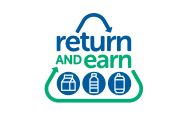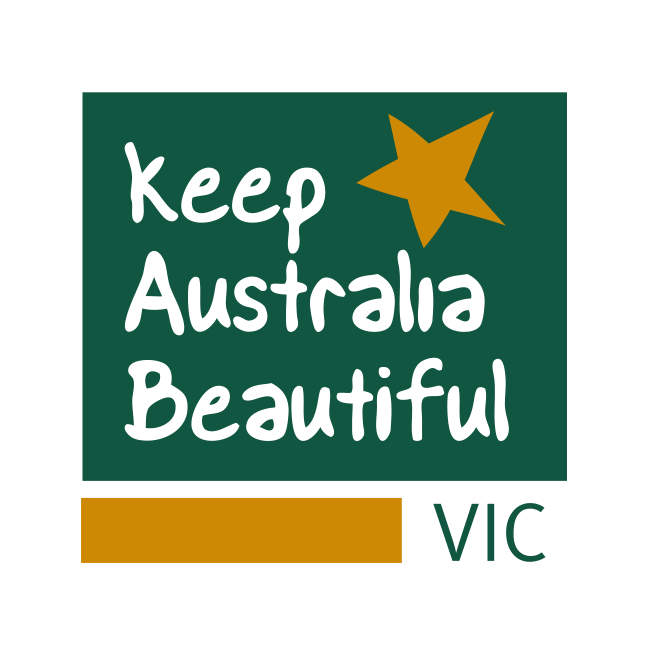SUSTAINABLE CITIES
Keep Australia Beautiful NSW Sustainable Cities Awards Program has been rewarding and recognising projects around litter, waste management, recycling and other environmental areas in metropolitan councils and urban communities since 1994.
About the Program
The Sustainable Cities Awards inspire councils and communities to make a genuine and lasting contribution to their area, with partnerships between local authorities, businesses, community groups, schools, and individuals.
There is no entry fee for these awards.
Who can Enter?
The Sustainable Cities Awards are open to councils, community groups and individuals. Category entrants include (but are not limited to) Councils, Individuals, Progress Associations, Youth Organisations, Landcare Groups, Chambers of Commerce, Local Authorities, Tourism Associations, Schools, Business, Small Enterprises and Industry, Registered Clubs and Service groups.
While projects may be ongoing, they must have recent significance with results shown over the past financial year. Previous overall and category award winners are welcome to enter again, but projects must have progressed from the previous entry, and those new achievements or outcomes must be demonstrated.
2020 Sustainable Cities Awards
Award Levels
The Sustainable Cities Awards Program incorporates category awards and awards for community groups, individuals and councils, culminating in an Overall Sustainable City Winner each year.
The Sustainable Cities Awards Program incorporates two levels of awards: the Overall Sustainable Council Award and the individual category awards.
These two levels recognise both individual and/or holistic projects and programs. Over the years, participants have advised us of numerous social, environmental and economic benefits of entering into the program including:
- Increased community pride, morale, spirit; and physical, mental & social well-being;
- Social interaction & co-operation between community members, groups and partners;
- Improved natural environment and restoration of wildlife habitats;
- Strengthening of current partnerships or initiation of new ones between community members and groups, councils and businesses;
- Potential for increased tourism and amenities for the local community;
- Reduction of waste, graffiti prevention, and enhanced management of waste services;
- Permanent recognition for winners and valuable feedback on award submissions;
- Public awareness of environmental education issues;
- Networking opportunities between industry, government, and environmental leaders and experts;
- Introduction and/or recognition of sustainability initiatives;
- Recognition of good governance in local government;
- Opportunities to showcase and celebrate the innovative work, expertise, and vision of your organisation or project;
- Increased valuable media exposure for your local area and community projects;
- Learning about other sustainability projects within NSW and sharing ideas with key stakeholders;
- Creating excitement and motivation for communities by recognising their efforts in sustainability or other environmental initiatives and programs.
Award Categories
2022 Sustainable Cities Winners
Overall Winner

RANDWICK CITY COUNCIL
In 2022, Randwick excelled, bringing together a superior suite of long- and short-term programs and impressive and innovative initiatives. Randwick has very effectively showcased sustainability programs developed and implemented over several years, culminating in being acknowledged as the leader in sustainability across the greater Sydney region.
With a very vibrant, committed and dynamic volunteer community which works across a diverse range of sustainability initiatives, Randwick has successfully demonstrated a special focus on greening the area, critical habit management, as well as community education across many sustainability projects.
2021 Sustainable Cities Winners
Overall Winner

CITY OF CANADA BAY
City of Canada Bay has set new benchmarks for sustainability, especially in engaging and empowering community to work collaboratively with Council to enhance the entire Canada Bay Local Government Area (LGA).
A range of diverse, well considered and executed programs that actively engage the community enables Council to effectively manage the myriad of sustainability and environmental challenges for decades to come. Benchmark targets to enhance waste management, emissions, efficient water use management, litter reduction, environmental protection, heat management amongst many others are clear, well communicated and achievable given the commitment and exceptional dedication demonstrated by Canada Bay this year.
Through its excellent initiatives and programs, the City of Canada Bay continues to showcase the importance of communities and Council working collaboratively to achieve common goals and connections across diverse and important range of issues.
2020 Sustainable Cities Winners
Overall Winner

NORTHERN BEACHES COUNCIL
The Overall 2020 Sustainable Cities Award was presented to Northern Beaches Council by Her Excellency the Honourable Margaret Beazley AC QC, Governor of New South Wales.
Northern Beaches Council was also the winner of the Recycled Organics and Environmental Communications Awards, joint winner of the Response to Climate Change Award and was Highly Commended in the Coastal and Waterways Protection Award and Don’t Be a Tosser! Litter Action Award, which is proudly supported by the NSW Environment Protection Authority (NSW EPA).
In addition, Northern Beaches Secondary College, Cromer Campus P&C Association and Seaforth Public School were awarded Highly Commended and Winner (respectively) of the School’s Environmental Achievement Award.
Community groups in the Northern Beaches area were also recognised in the Coastal and Waterways Protection Category with Operation Straw receiving Highly Commended and Australian Microplastic Assessment Project awarded category winner.
2019 Sustainable Cities Winners
Overall Winner

CUMBERLAND COUNCIL
The Overall 2019 Sustainable Cities Award was presented to Cumberland Council.
Cumberland Council was also the winner of the Habitat and Wildlife Conservation Award and the Community Spirit and Inclusion Award and was Highly Commended in the Waste Less, Recycle More – Waste Minimisation Award, which is proudly supported by the NSW Environment Protection Authority (NSW EPA).
2018 Sustainable Cities Winners
Overall Winner

INNER WEST COUNCIL
The Overall 2018 Sustainable Cities Award was presented to Inner West Council.
Inner West Council was also the winner of the Recycled Organics Award, and was Highly Commended in the Waste Less, Recycle More – Waste Minimisation Award, which is proudly supported by the NSW Environment Protection Authority (NSW EPA), and the Renewable Energy Award.
Proudly Sponsored by:


